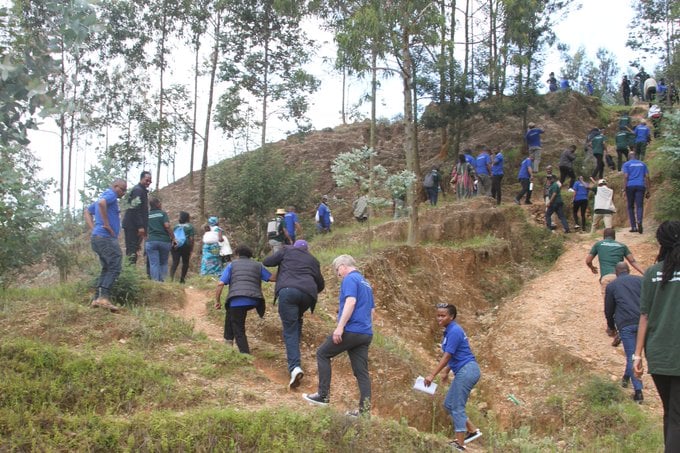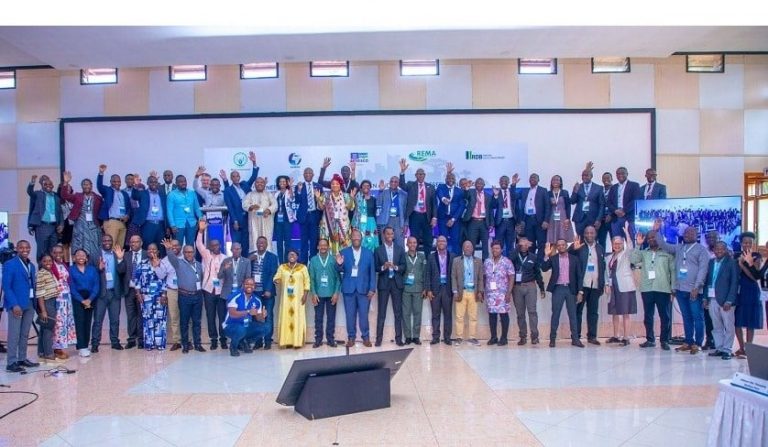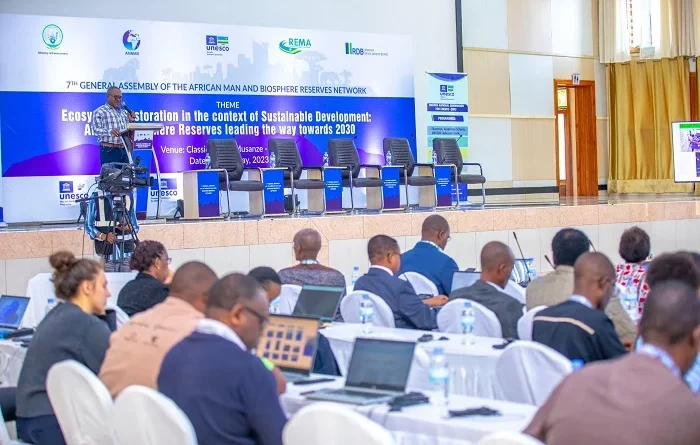Rwanda is called upon to host the Global Biodiversity Summit
African countries, including Rwanda, are calling for the establishment of a 7th African Union institution known as the African Mechanism for Biosafety (AFRIMAB) to help manage and monitor biodiversity and biotechnology on a continental scale.
This initiative aims to leverage technology for the collection and dissemination of information related to biodiversity, with a recent gathering held in Rwanda’s Musanze region.
This innovative technology is seen as a means to foster cooperation and knowledge sharing beyond borders, benefiting not only Africa but the world at large.
A teacher at Rwanda’s University who is part of a team dedicated to gathering information on biodiversity in Rwanda, Mapendo MINDJE, spoke with Teradignews and highlighted the potential of this technology in improving biodiversity management.
She stated, “In the last three years, this technology has been used extensively for collecting biodiversity information at over 135 sites, and we continue to collect data in this manner to support conservation efforts in Rwanda. It has led to efficient data collection and a timely response to biodiversity challenges.”
She continued to explain that this system is accessible on a global scale and opens up opportunities for knowledge exchange, ultimately contributing to the preservation of biodiversity, especially in high-priority areas.
Representatives from 34 countries have expressed their support for Rwanda’s efforts in biodiversity management and the call for the establishment of a global institution focused on this important aspect of environmental conservation.

Marlene Chikuni from Malawi commended Rwanda’s commitment to technology and its positive impact on biodiversity management, recognizing that many people are drawn to Rwanda for its natural beauty and conservation efforts.
She emphasized that this technology enhances the quality of life by preserving the environment and its rich resources.
Chikuni expressed, “In this meeting, I have seen many positive aspects of Rwanda that have truly impressed me. I am particularly amazed by the use of technology to achieve numerous things. However, what strikes me most is their dedication to efficient biodiversity management and environmental conservation.”
“Many people are drawn to visit Rwanda due to its natural beauty and the unique wildlife it offers. It’s a testament to the country’s commitment to preserving biodiversity, which is crucial for improving people’s quality of life. The way they handle environmental challenges is impressive, and it has a positive impact on individuals, making them feel good, with a sense of well-being,” she added.
“Another noteworthy aspect I’ve observed in Rwanda is their consistent effort to address and prevent environmental degradation. The nation as a whole seems to prioritize biodiversity preservation, and it sends a positive message to the rest of the world. The global community can learn a lot from this excellent system implemented for biodiversity management and environmental conservation,” she concluded.
Anass Aboubakar, who hails from Chad, praised Rwanda and emphasized that what Rwanda is doing in biodiversity management and environmental conservation is not only important for Africa but should also be shared with the entire world because it holds great value.
He stated, “First and foremost, I applaud Rwanda for its significant achievements in this advanced system of biodiversity management and environmental conservation. I believe that this technology is invaluable and there’s no doubt that it should be a model for Chad and the rest of the world. Rwanda’s commitment to this cause, and the fact that it’s now being recognized globally, is a beacon of hope for our neighboring countries.”
“I admire the progress of this country, its natural beauty, and the dedication it shows to environmental preservation. The unique beauty of Rwanda, along with its strong commitment to conservation, serves as a great example for the entire world. What Rwanda has accomplished with this system is something remarkable and beneficial for the global community,” he added.

Dominique Mvunabandi, a leader in the field of education, technology, and culture with UNESCO, emphasized the importance of this technology in fostering collaboration and decision-making in biodiversity conservation. He emphasized the need for comprehensive research and cooperation among relevant stakeholders to address the challenges associated with biodiversity preservation.
The data presented on Rwanda’s university website showcases advancements in biodiversity management, indicating the growth of bird populations and illustrating the presence of various ecosystems. However, it also reveals ongoing challenges, such as the diverse types of challenges related to biodiversity, including different species and other factors.

